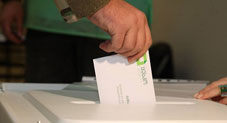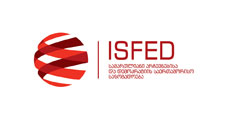
ISFED releases report on Unofficial Election Period
By Khatia Bzhalava
Tuesday, August 10
On August 6, the International Society for Fair Elections and Democracy (ISFED) issued a Monitoring Report for the Unofficial Election Phase of the 2021 Local Self-Government Elections. The report covers the period from June 1 through August 2. ISFED revealed the alleged facts of dismissal on political grounds, discrimination and violence against female politicians, and implementation of projects to manipulate voters’ will.
As ISFED reports, on August 2, a day before the launch of the official campaign period, the Parliament of Georgia elected the chair and two professional members of the Central Election Commission (CEC) with “low legitimacy”, meaning that they will hold the positions only for 6 months. ISFED believes that it was not possible to select the nominees that would enjoy high legitimacy among the public and the political spectrum, hence, lack of public trust, which is the main problem facing the election administration, remains unaddressed ahead of the local self-government elections.
Similar to the 2020 Parliamentary election, cases of announcing and implementing infrastructure and social projects to win the hearts of voters are common. As one of such decisions ISFED names the initiative of Prime Minister Irakli Garibashvili to write off fines from individuals and legal entities imposed for violating coronavirus regulations. ISFED believes that such actions carry the risk of manipulation of voters’ choices.
The report revealed the trend of alleged politically motivated dismissals and pressure in the regions of Georgia, mainly targeting ex-Prime Minister Giorgi Gakharia’s party. The report also revealed that against the background of worsening the model of the gender quota mechanism by the Parliament of Georgia, the problem of the existence of a hostile environment towards women in politics became more evident. ISFED also stressed the existence of gender-based insults against female members of Parliament.
The report reads that negative attitude towards media representatives has become particularly alarming.
“Hampering the work of media representatives negatively affects the right of voters to receive complete and comprehensive information on political/electoral processes, and by extension, the right to make an informed choice,” ISFED reports.


